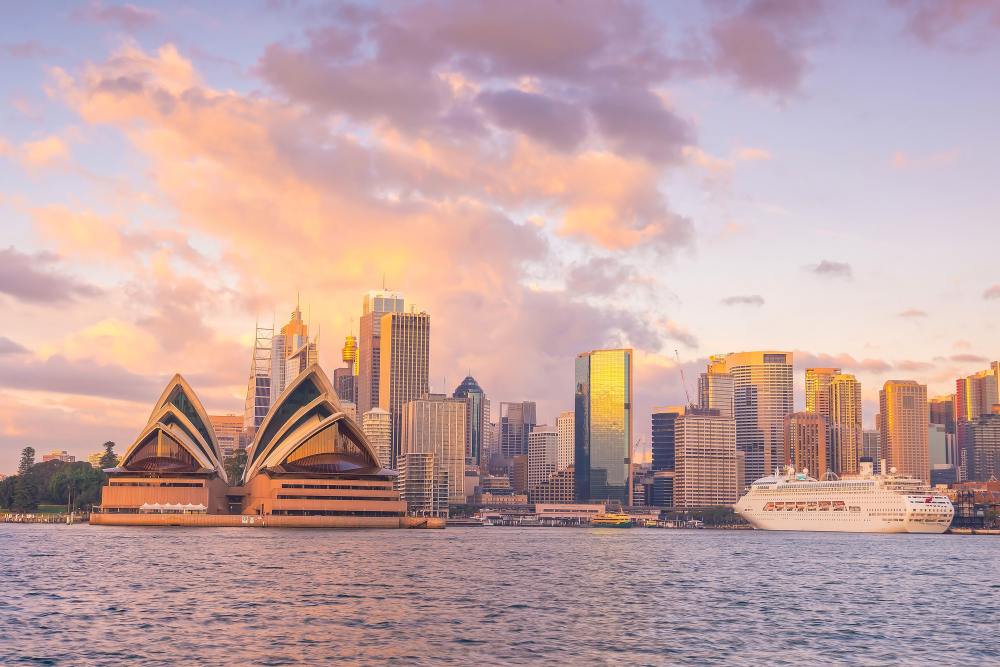
Australia has steadily emerged as a highly regarded medical tourism destination, particularly among patients from neighboring Asia-Pacific nations and the Middle East. Known for its advanced healthcare infrastructure, world-class medical education, and strict regulatory standards, Australia delivers a high standard of care across a wide range of specialties. Key cities like Sydney, Melbourne, Brisbane, and Perth host leading hospitals and clinics that serve international patients with clinical excellence, transparency, and professionalism.
While the cost of treatment in Australia may be higher compared to some developing medical tourism hubs, many international patients choose Australia for its exceptional safety standards, innovative technologies, and the ability to access procedures that may have long waiting lists in their home countries. The country’s healthcare system is consistently ranked among the best globally, and its universal public system (Medicare) operates alongside a robust private sector, enabling international patients to receive swift, elective care without compromise.
Australia is particularly well-known for high-end specialty care including oncology, cardiovascular surgery, orthopedic interventions, and fertility treatments. The country is also a pioneer in robotic and minimally invasive surgeries, complex neurosurgical procedures, and organ transplants, with impressive outcomes and well-established clinical protocols.
Australia’s fertility clinics are among the best in the world, especially for IVF and donor egg programs, supported by stringent ethical and legal frameworks. Dermatology and cosmetic surgeries—such as breast augmentation, body contouring, and skin cancer removal—are also frequently sought by medical tourists.
Medical tourists often choose Australia not just for quality but for reassurance—thanks to internationally certified facilities, top-tier nursing care, and multidisciplinary treatment teams. Medical professionals in Australia are typically trained in the UK, US, or Australia’s own competitive academic institutions, with English as the native language, making communication seamless.
Australia’s international airports—including Sydney Kingsford Smith, Melbourne Tullamarine, and Brisbane International—are major hubs connecting patients from Southeast Asia, the Middle East, and even North America. Visa access is relatively straightforward for medical travelers through the Medical Treatment Visa (Subclass 602), designed specifically for people seeking medical care in Australia.
Many hospitals and medical tourism facilitators offer end-to-end support: pre-arrival consultations, airport pickup, interpreter services, and personalized care coordination. Accommodation is often arranged in close proximity to treatment centers, with options ranging from hotel suites to patient apartments with nursing access. Some institutions also provide recovery assistance and day tours for post-operative healing.
Culturally inclusive, Australian healthcare facilities accommodate religious and dietary preferences, including halal food, multilingual staff, and female-only care teams when requested. The country's clean environment, stable political system, and focus on patient dignity further enhance the experience.
Australia maintains one of the most regulated and transparent healthcare systems in the world. Hospitals and clinics are overseen by state and federal health departments and adhere to standards set by the Australian Commission on Safety and Quality in Health Care (ACSQHC). Many facilities also seek global accreditations.
Stringent infection control protocols, data privacy laws, and patient advocacy systems protect medical tourists. Should concerns arise, patients have access to legal mechanisms and can escalate complaints to national health regulators.
Post-treatment support is robust, with telemedicine follow-ups, physiotherapy, and long-term care planning commonly integrated into treatment packages. Rehabilitation centers across the country are also available for extended recovery in peaceful, natural settings.
Australia offers a premium medical tourism experience grounded in excellence, ethics, and empathy. With its cutting-edge technologies, well-regulated system, English-speaking professionals, and high success rates across various specialties, it remains a strong option for patients who prioritize safety, long-term outcomes, and comfort. Whether you’re seeking complex treatment or preventive care in a modern, patient-centered environment, Australia’s medical system is equipped to deliver care that matches the best in the world.
1. Why choose Australia for medical tourism?
Australia offers high-quality, safe, and advanced medical care.
2. Is healthcare in Australia expensive?
It’s costlier than some countries, but the quality justifies the price.
3. What medical treatments are popular in Australia?
Cancer care, IVF, orthopedic surgery, heart procedures, and cosmetic surgery.
4. Do doctors speak English?
Yes, English is the native language in Australia.
5. Are Australian hospitals internationally accredited?
Many are accredited and meet strict global healthcare standards.
6. How do I get a visa for treatment in Australia?
You can apply for the Medical Treatment Visa (Subclass 602).
7. Are there long wait times?
Private hospitals offer fast-track access for international patients.
8. Can I get help with travel and stay?
Yes, many clinics offer full support including accommodation and transport.
9. Is it safe to undergo surgery in Australia?
Yes, safety, hygiene, and patient care are highly regulated.
10. Will my cultural or dietary needs be respected?
Yes, hospitals provide halal meals, interpreters, and same-gender caregivers if needed.
11. Can I get post-treatment follow-up care?
Yes, follow-ups via telemedicine and rehabilitation are widely available.
12. Are alternative or wellness therapies available?
Yes, some facilities offer holistic and rehab services in natural surroundings.
13. Is patient data protected in Australia?
Yes, strict privacy laws safeguard your medical information.
14. Are there legal protections for international patients?
Yes, Australia has legal channels for complaints or concerns.
15. Is Australia suitable for long-term recovery stays?
Yes, peaceful recovery centers and wellness resorts are available.